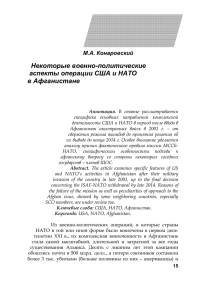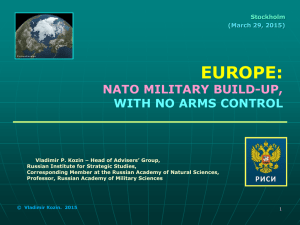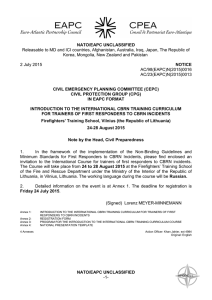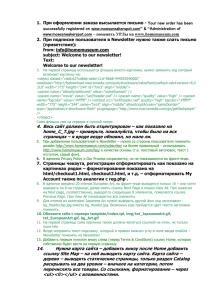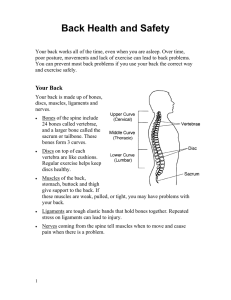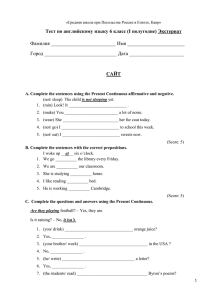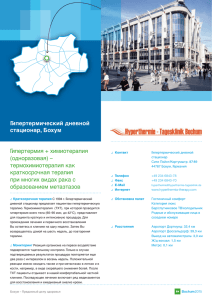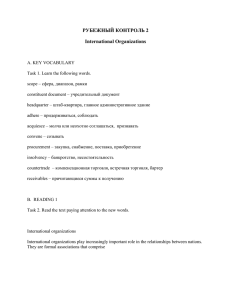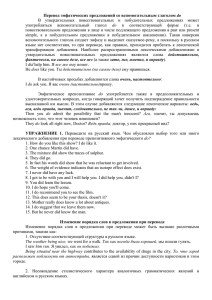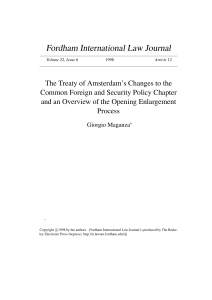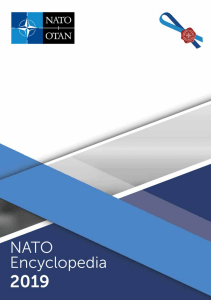NATO 1
реклама
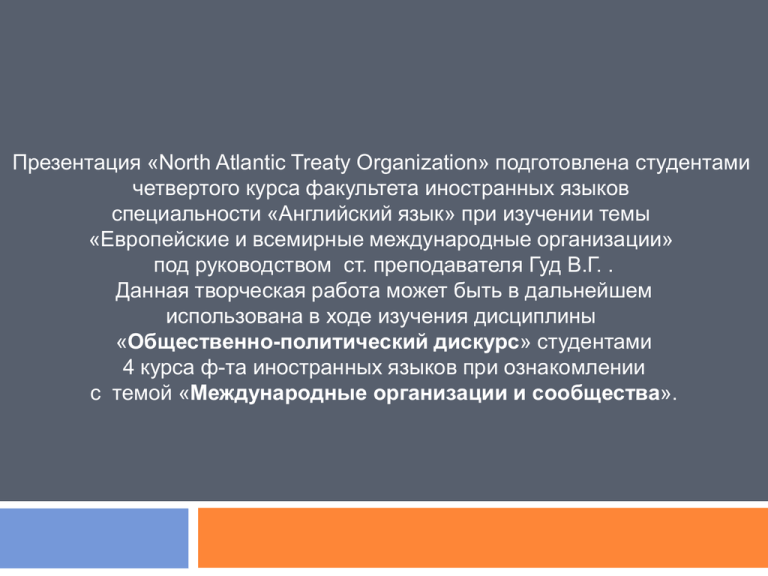
Презентация «North Atlantic Treaty Organization» подготовлена студентами четвертого курса факультета иностранных языков специальности «Английский язык» при изучении темы «Европейские и всемирные международные организации» под руководством ст. преподавателя Гуд В.Г. . Данная творческая работа может быть в дальнейшем использована в ходе изучения дисциплины «Общественно-политический дискурс» студентами 4 курса ф-та иностранных языков при ознакомлении с темой «Международные организации и сообщества». The NATO (North Atlantic Treaty Organization) is an international alliance that consists of 28 member states from North America and Europe. It was established at the signing of the North Atlantic Treaty on 4 April 1949. Formation - 4 April 1949 Headquarters - Brussels, Belgium Official language English French NATO Founders 1. 2. 3. 4. 5. 6. 7. 8. 9. 10. 11. 12. Belgium Canada Denmark France Iceland Italy Luxembourg Netherlands Norway Portugal United Kingdom United States From 18 February 1952 to 1 April 2009 1. 2. 3. 4. 5. 6. 7. 8. 9. 10. 11. 12. 13. 14. 15. 16. Greece Turkey Germany Spain Czech Republic Hungary Poland Bulgaria Estonia Latvia Lithuania Romania Slovakia Slovenia Albania Croatia Members of NATO The colour of the flag carry cultural, political, and regional meanings. The dark blue field represents the Atlantic Ocean, while the circle stands for unity among the member states of NATO. The compass rose symbolizes the direction towards the path of peace, the goal that member states strive for; it has been updated once. The Flag Animus in consulendo liber Slogan 13th Secretary General - Jens Stoltenberg( Norway) Chairman of the NATO Military Committee - Knud Bartels ( Denmark) NATO NATO’s essential purpose is to safeguard the freedom and security of its members through political and military means. Basic points POLITICAL - NATO promotes democratic values and encourages consultation and cooperation on defence and security issues to build trust and prevent conflict. MILITARY – NATO is committed to the peaceful resolution of disputes. If diplomatic efforts fail, it has the military capacity needed to undertake crisis-management operations. Article 5 of the Washington) NATO is committed to the principle that an attack against one or several members is considered as an attack against all. This is the principle of collective defence , which is enshrined in Article 5 of the Washington Treaty. Collective defence NATO provides a unique opportunity for member countries to consult and take decisions on security issues at all levels and in a variety of fields. A “NATO decision” is the expression of the collective will of all 28 member countries since all decisions are taken by consensus. Decisions and consultations NATO takes an active role in a broad range of crisismanagement operations and missions, including civil emergency operations. NATO’s crisis-management operations are carried out under Article 5 of the Washington Treaty or under a UN mandate. •Afghanistan • Kosovo •Counter-piracy •Monitoring the Mediterranean •Supporting the African Union Operations and missions Civil Structure Main Bodies: Headquarters (HQ), the Permanent Representatives and National Delegations, The Secretary General, and the International Staff (IS) Military structure Main Bodies: Military Committee, the Chairman of the Military Committee, Strategic NATO Commanders, International Military Staff, Allied Command Europe (ACE), and Allied Command Atlantic (ACLANT) Organisations and agencies NATO Support Agency (NSPA NATO Communications and Information Agency NATO Science and Technology Organization Military Engineering Military Medical Objectives and Structure
